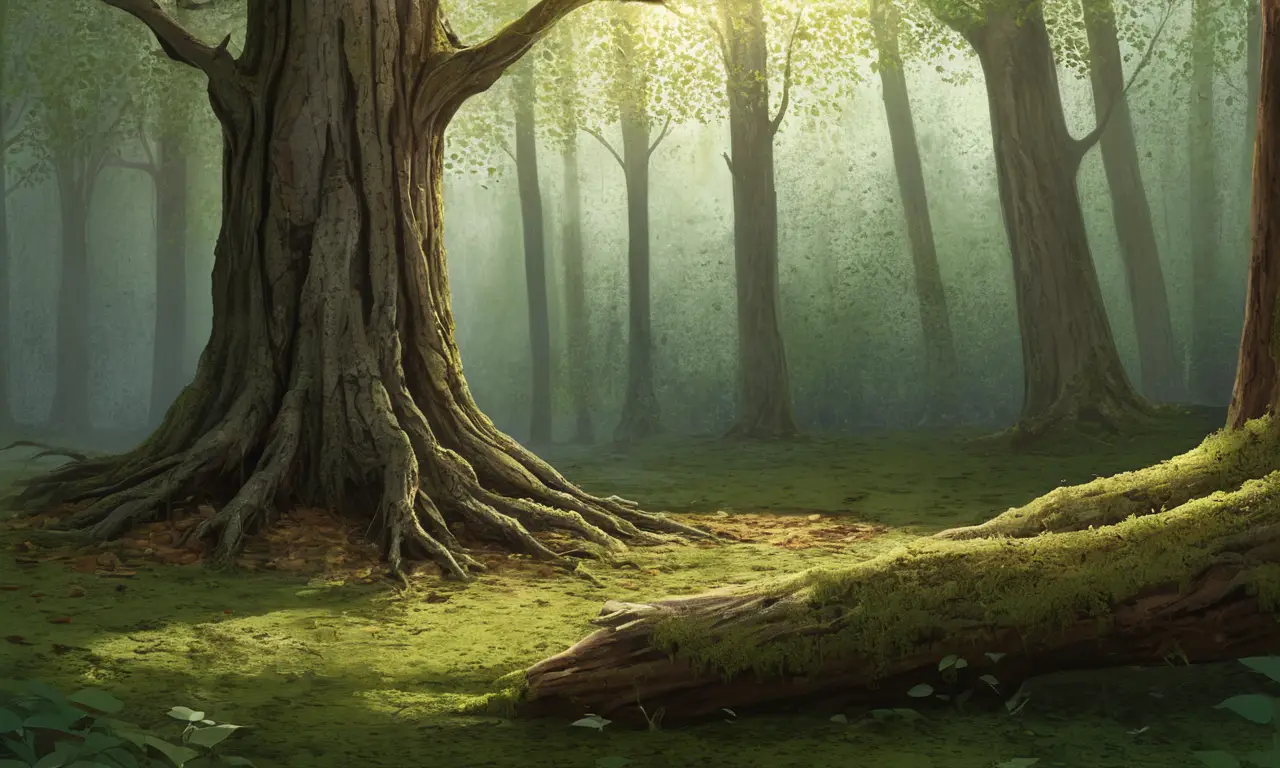The age-old philosophical question, “If a tree falls in the forest and no one is around to hear it, does it make a sound?” has captivated thinkers for centuries. This thought experiment delves into the very essence of perception and reality, challenging us to consider whether events possess an objective existence independent of observation.
This article will explore the intricacies of this paradox, examining the concepts of observer effect, objective reality versus subjective experience, and the role of consciousness in shaping our understanding of the world. We’ll journey through various philosophical perspectives to shed light on the enduring mystery of if a tree falls in the forest meaning.
The Sound Paradox
At its core, the “tree falling in the forest” paradox hinges on the ambiguity surrounding the word “sound.” Does sound exist as a physical phenomenon independent of our perception, or is it solely a product of our auditory experience?
If we define sound as the vibration of air molecules, then yes, a falling tree would undoubtedly create these vibrations regardless of whether an observer is present. However, if we define sound as the conscious perception of those vibrations, then the answer becomes more complex. Without an ear to register the vibrations, can we truly say that sound exists?
This paradox highlights the inherent subjectivity in our understanding of the world. What we perceive as reality is often filtered through our senses and experiences, leading to variations in interpretation.
Observer Effect

The concept of observer effect further complicates the “tree falling in the forest” dilemma. In quantum mechanics, the act of observation can influence the state of a system. This suggests that consciousness itself might play an active role in shaping reality.
If this principle extends beyond the realm of subatomic particles, could our very act of observing a tree falling influence its existence? Does the potential for observation alter the event itself? While these questions remain largely speculative, they underscore the profound interconnectedness between observer and observed.
Objective Reality vs. Subjective Experience
The “tree falling in the forest” paradox forces us to confront the fundamental distinction between objective reality and subjective experience.
Objective reality refers to an external world that exists independently of our perception. It encompasses physical laws, events, and objects that would persist even if no one were around to witness them. Subjective experience, on the other hand, is the individual’s unique interpretation and understanding of reality, shaped by their senses, emotions, beliefs, and cultural background.
While objective reality may provide a framework for understanding the world, our subjective experiences color our perception of events. The “tree falling in the forest” illustrates how even seemingly straightforward occurrences can be interpreted differently based on individual perspectives.
Consciousness and Perception

The role of consciousness in shaping our understanding of reality is central to the “tree falling in the forest” debate.
Consciousness allows us to process sensory information, form thoughts, and create meaning from our experiences. It enables us to distinguish between what is real and what is imagined, but it also introduces a layer of subjectivity into our perception. Without consciousness, there would be no awareness of the world, no sense of self, and no capacity for interpretation.
The “tree falling in the forest” paradox raises questions about the nature of consciousness itself. Does consciousness create reality, or does it merely reflect an existing reality? Is there a fundamental separation between the observer and the observed, or are they inextricably linked?
Philosophical Implications
The enduring fascination with the “tree falling in the forest” question stems from its profound philosophical implications.
It challenges us to reconsider our assumptions about the nature of reality, perception, and consciousness. It prompts us to explore the limits of human understanding and to grapple with the fundamental mystery of existence. Whether we ultimately conclude that sound exists independently of an observer or that it is a product of conscious experience, this thought experiment continues to inspire contemplation and debate.
Conclusion
The “tree falling in the forest” paradox remains a captivating enigma, prompting us to delve into the complex relationship between perception, reality, and consciousness. While there may not be a definitive answer to the question of if a tree falls in the forest meaning, the exploration itself enriches our understanding of the world and our place within it.



